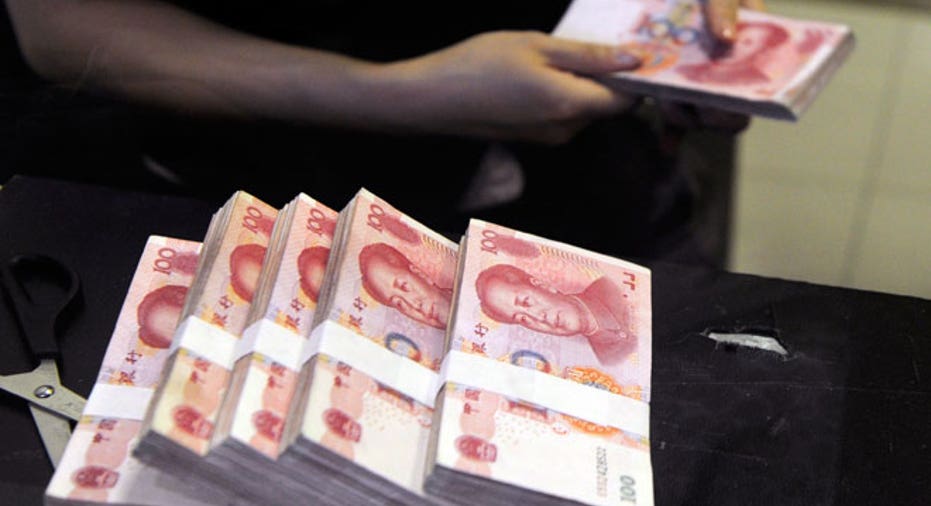Time to Go Long Yuan?

The Chinese currency, the Renminbi, has fallen by more than 1% against the U.S. dollar in international markets over the last two weeks. A 1% move is huge in currency markets and especially significant for the carefully controlled Chinese Yuan. (The Renminbi is the official name for the Chinese currency, and the Yuan is the actual unit of currency. Think of it as similar the British Sterling where the actual unit is the Pound.)
So why did the move happen? The short answer is the Chinese want to inject volatility into their currency markets and deter speculation.
It has long been known that the valuation of the Renminbi has been manipulated by the Chinese to gain an advantage against other nations in the export market. This policy has allowed the Chinese to amass large foreign currency reserves and grow the GDP to keep the population happy. As long as there was growth, people could find jobs and feed their families. The masses were happy.
However, this paradigm has slowly begun to change. There have been vociferous calls from Western nations for China to allow its currency to appreciate to market levels. In fact, China has allowed a 30%-plus rise in valuation since allowing the currency to float against the USD in 2005. China is also ravenously thirsty for raw material imports and a stronger currency helps in this regard.
The problem for the Chinese government is that international speculators and indigenous Chinese corporate entities have experienced a one-way move in the currency and took this movement for granted and invested accordingly. This caused further upward pressure on the Renminbi. So the Chinese Central Bank acted to push down the currency’s value to the lowest in seven months, recently touching 6.1275 to the USD.
The Chinese have another goal for the Renminbi, which is to promote its use as a global trading and reserve currency. This status can only be finally achieved by allowing the currency to free float on international markets. To move toward that goal, the Central Bank plans to double the trading band from 1% to 2% swings against the reference rate. This will definitely inject more volatility into the mix.
So the move by the Central Bank to lower the Renminbi’s value was an attempt to strike fear in the hearts of currency speculators and native corporations long the borrow in USD/pay in RMB carry trade. They want to bolster the belief that two-way movement is the norm in the trading action of the RMB. This of course is not the case; most economists agree the RMB is still significantly undervalued.
Another factor investors should be aware of is that China is beginning to gradually remove certain subsidies from its economy that could slow economic growth and diminish the upward pressure on the currency.
That being said, the safe bet is that over the near term, the RMB will continue to appreciate against the USD and recent market action has been a government attempt to remind investors who is in control. If that is the case, then that makes this recent government engineered devaluation of the RMB a good old fashioned buying opportunity.
So should you back the truck up? I would think not, but it may be prudent to take a long position commensurate with your portfolio allocation. And of course, I don’t believe there will be another year-and-a-half period of one-way action any time soon -- the Chinese Central Bank has expressed its displeasure with that scenario.
However, the Chinese desire to move the RMB to a free floating currency should keep the bid strong for the RMB and its overall upward movement should continue in the medium term.
What vehicle you use to execute this trade, of course, is dependent on your overall strategy, risk tolerance, and should be tailored to fit your portfolio. So, maybe give a ring to your investment advisor and ask for some options to play the RMB. There are ETFs available and one can also get exposure by opening an RMB account at the Bank of China. More sophisticated investors can set up non deliverable forward transactions or NDFs with their FX derivative desk.
L. Todd Wood is a former special operations helicopter pilot and bond trader. His thriller novel, Currency, deals with overwhelming sovereign debt. LToddWood.com



















